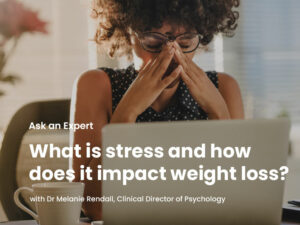After undergoing weight loss surgery, the journey towards a healthier lifestyle involves not only physical transformations but also mindful choices in your diet. While there’s a common misconception that healthier food is more expensive, this blog aims to explore the cost-effective aspects of choosing nutritious options post-weight loss surgery, even in the context of managing your overall cost of living. Here are several ways in which healthier food can be more economical in the long run:
Meal planning and cooking at home
Cooking at home is generally more affordable than dining out or ordering fast food. Homemade meals allow you to control the ingredients, making it easier to incorporate nutritious elements. Pre-packaged and fast foods may seem cheaper upfront, but the cost per serving is often higher. Planning meals and cooking at home allows you to buy ingredients in bulk, reducing overall costs and providing greater control over the nutritional quality of your meals, as you can incorporate a variety of fruits, vegetables, lean proteins, and whole grains. Planning meals in advance also helps avoid impulse purchases and reduces food waste.
Bulk purchasing
In the face of rising food prices, strategic shopping becomes paramount. Buying staple ingredients in bulk can significantly reduce the per-unit cost. Purchasing items like whole grains, legumes, and nuts in bulk is often more economical and encourages the inclusion of nutrient-rich foods in your diet.
Affordable nutrient-rich foods
Contrary to popular belief, eating healthily doesn’t have to break the bank. There are numerous affordable, nutrient-dense foods that can fuel your body and support your weight loss goals. Focus on whole, unprocessed foods. Not only are these often cheaper than their processed counterparts, but they also tend to be more nutrient-dense, providing more bang for your buck. Don’t overlook frozen fruits and vegetables- these are typically more affordable than fresh produce and can be just as nutritious, if not more so, as they’re often flash-frozen at peak ripeness. In addition, plant-based protein sources such as beans, lentils, and tofu are often cheaper than meat. Incorporating more plant-based proteins can have positive effects on heart health and weight management.
Reduction in health costs
While healthier food may seem more expensive upfront, it can contribute to preventing chronic health conditions. Avoiding obesity-related health issues can lead to substantial savings on medical bills, prescription medications, and doctor visits in the long term. By addressing our diet, we can potentially mitigate these future costs. While it’s true that healthier foods may sometimes come with a higher upfront cost, consider the long-term savings associated with improved health. By preventing obesity-related illnesses, such as diabetes and heart disease, you’ll likely spend less on prescription medications, as an example, in the years to come.
While it might seem that healthier foods are more expensive on a per-item basis, the overall cost-effectiveness of a nutritious diet becomes evident when considering long-term health benefits and the potential reduction in medical expenses. By making informed, cost-effective choices and focusing on nutrient-dense options, you can not only support your post-surgery journey but also positively impact your overall cost of living. The key is to view your food choices as an investment in your health and wellbeing, paying dividends in the form of long-term vitality and financial savings.
To enquire with Streamline about the weight loss procedures we offer, please call 0333 016 3030 or fill in the online enquiry form below.



